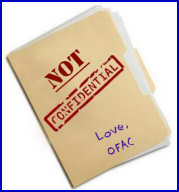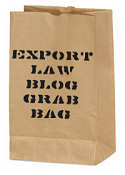
ABOVE: Pinnacle Aircraft Parts HQ
The Office of Foreign Assets Control (“OFAC”) released civil penalty information revealing that Pinnacle Aircraft Parts, Inc., agreed to pay $225,000 to settle allegations that Pinnacle had failed to comply with an OFAC subpoena. OFAC had issued the subpoena as part of its investigation of Pinnacle’s involvement in the sale of a jet engine that may have been ultimately destined for Iran. Principally at issue was an email that Pinnacle had given its lawyer “indicating that the aircraft engine was likely destined for Iran” but which the company had failed to supply to OFAC in its response to the subpoena.
You don’t have to be Perry Mason to figure out why the lawyer didn’t want to hand over that email. Because the email appeared to indicate an awareness by the company and its employees that the engine was going to Iran, that email could have served as a basis for criminal prosecution of Pinnacle and/or some of its principals or employees.
There is no mention by OFAC whether Pinnacle attempted to assert a privilege or not in connection with its failure to turn over the email. A problem, of course, with asserting a Fifth Amendment privilege here is that although the principals and employees of Pinnacle might have had that right for documents in their possession, the corporation did not have that privilege. See, e.g., Couch v. United States, 409 U.S. 322 (1973).
In calculating the appropriate penalty, OFAC called the failure to provide the email “egregious,” suggesting that Pinnacle’s lawyer did not even try to assert any privileges with respect to the email and simply locked it up in a file cabinet. The penalty was slightly mitigated by OFAC based on the fact that Pinnacle relied on advice of counsel in deciding not to turn over the email.
Although Pinnacle relied on the advice of counsel in determining not to produce the e-mail and other documents, Pinnacle is the party legally responsible for compliance with OFAC’s subpoena and the actions of its counsel (in this case, the determination that clearly responsive documents need not be produced to OFAC) are attributable to Pinnacle for purposes of calculating a base penalty and settlement amount.
Well, at least OFAC had the courtesy of teeing up a malpractice suit by Pinnacle against its unnamed attorney for the amount of the fine.

 Posted by
Posted by  Category:
Category: 

 In the latest
In the latest  Earlier this month, a federal district court judge in New York
Earlier this month, a federal district court judge in New York  No big news today, so it’s time for another Export Law Blog grab bag:
No big news today, so it’s time for another Export Law Blog grab bag: On Monday, the Department of Treasury’s Office of Foreign Assets Control (“OFAC”)
On Monday, the Department of Treasury’s Office of Foreign Assets Control (“OFAC”) 

